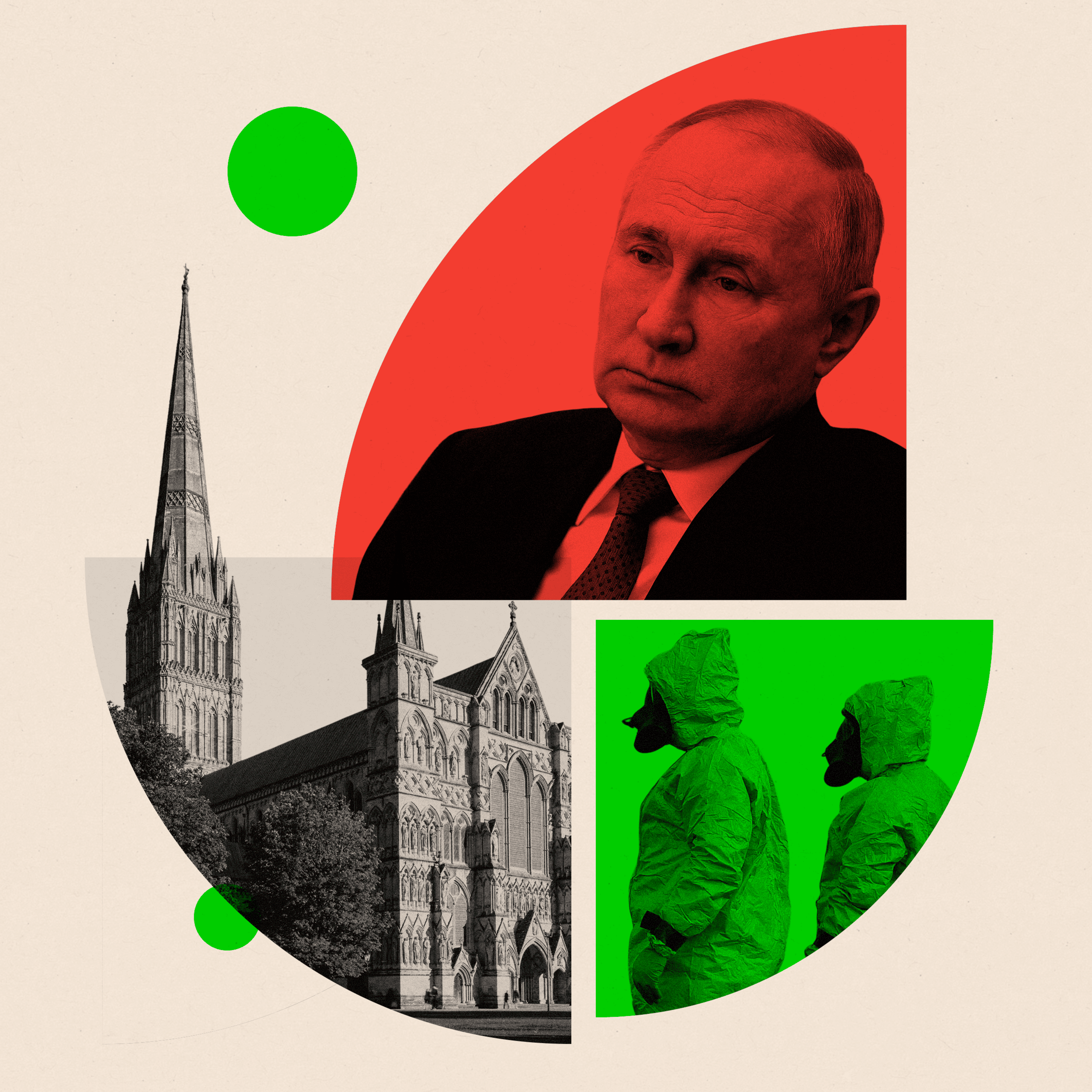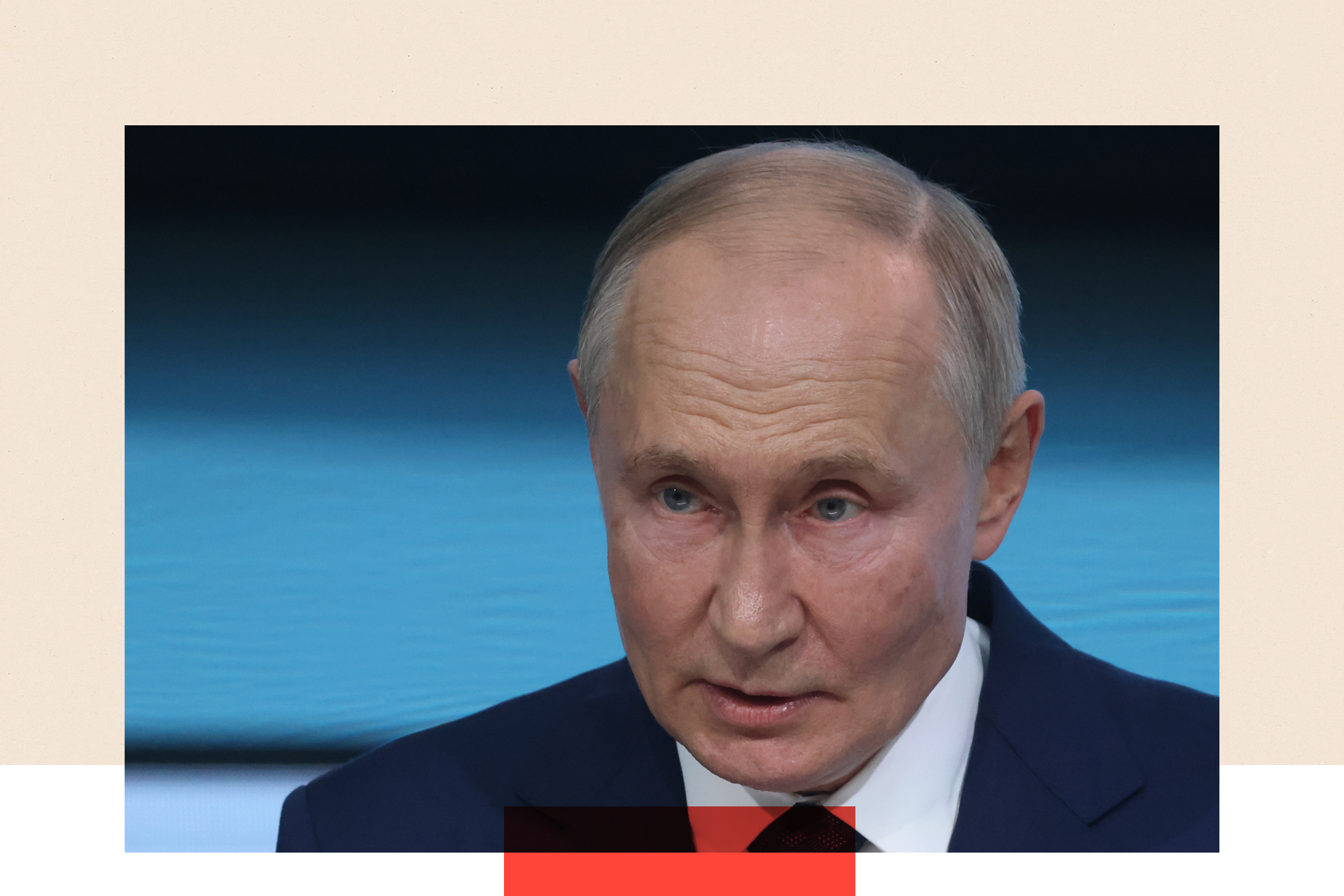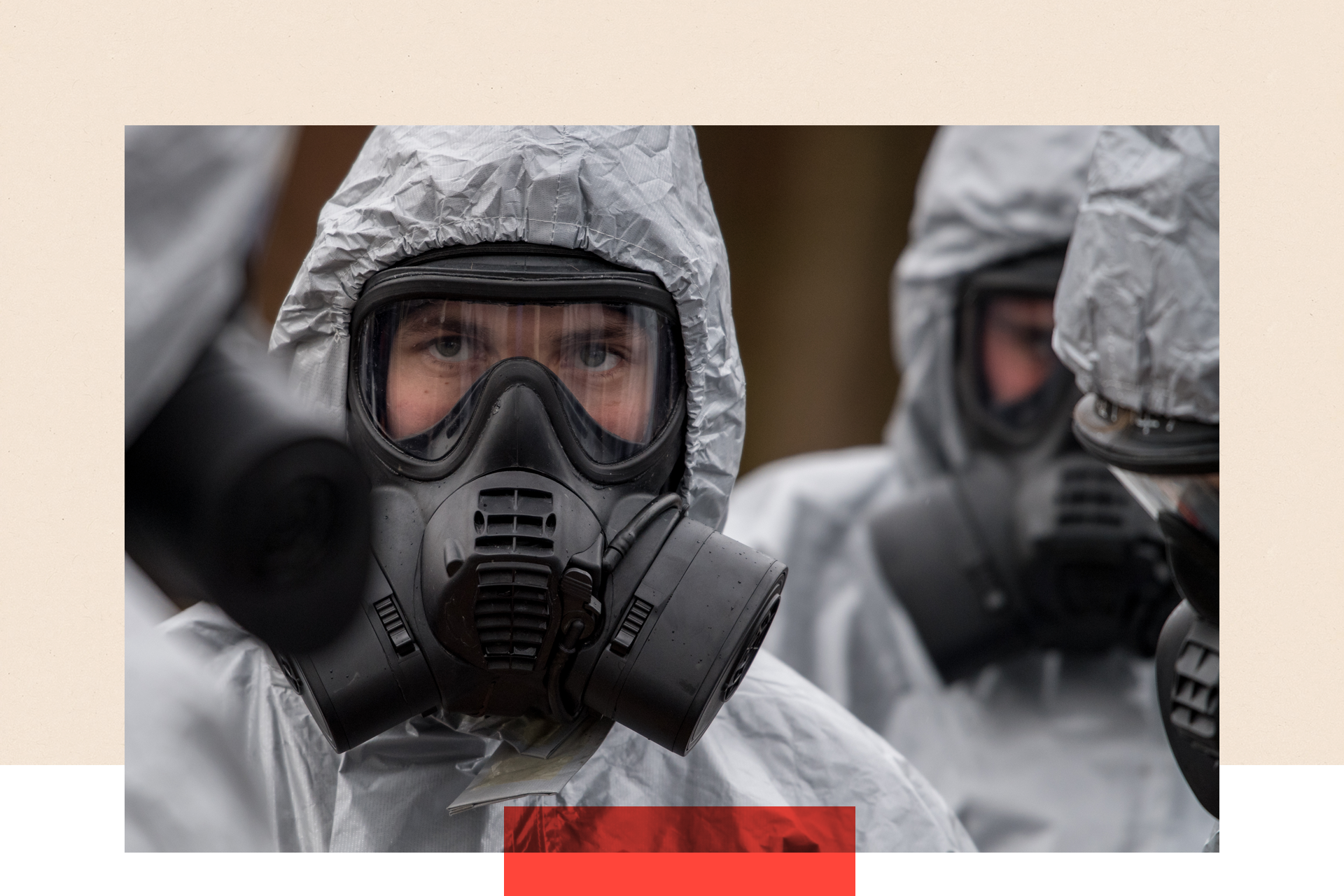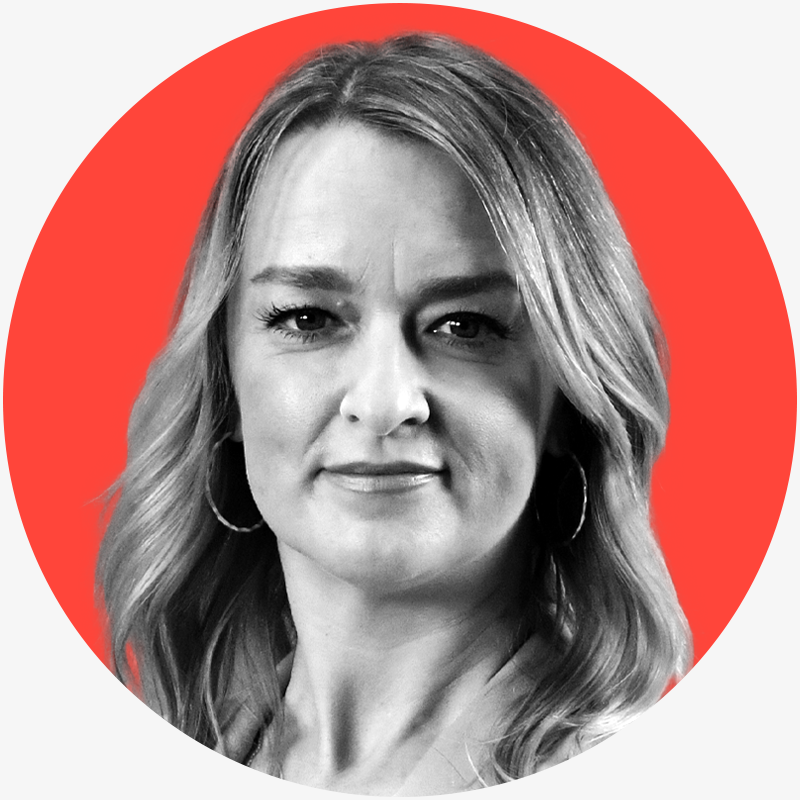
The family of Dawn Sturgess, who died six years ago after coming into contact with Novichok, have been calling on Vladimir Putin to speak to the inquiry after her death in the Salisbury poisonings.
I put their request directly to Andrei Kelin, the Russian ambassador to the UK, in as part of a wide-ranging sit-down interview that will be broadcast on Sunday.
“I hardly believe President Putin will go to Britain just to testify something,” he said.
The UK government holds Russia, and two Russian agents, known as Alexander Petrov and Ruslan Boshirov, responsible for the attack.
Andrei Kelin questioned the need for an inquiry. “Why drag this history so long?”
He also rejected suggestions Petrov or Borishov should attend, saying the men had already given answers on TV - referring to a 2018 interview they gave on Russian state TV in which they claimed they had just been visiting Salisbury Cathedral.
That claim was mocked by some in Russia. UK officials called the interview “risible”.
Challenged with the fact that the UK, US, France, Germany, Canada all believe the attack was carried out by Russia with Novichok manufactured in Russia, Kelin said that “too many governments” were involved and dismissed their allegation as “nonsense“.
Pressed to give a response to the Sturgess family, the ambassador appeared to laugh, saying: “I have never met this family … If someone has died, of course we are concerned about that.”
Watch: Highlights from Laura Kuenssberg's interview with Andrei Kelin
On Ukraine, Kelin accused the UK of “waging war” on Russia by supporting the country with weapons and resources. If Zelensky “won’t negotiate with us, fine”, he said. “He will lose more and more terrain.”
This week, the Ukrainian president published a so-called victory plan to try to bring the conflict to an end next year.
It includes a formal request to join Nato and the lifting of bans on long-range strikes with Western-supplied weapons deep into Russia.
Challenged on Russia’s illegal invasion and stalemate in the war, the ambassador said Zelensky “does not want peace … he continues to ask for more and more; Nato, EU assistance, defence packages.
“Anything, but nothing about negotiations at all.”
Kyiv, backed by its allies, has always rejected any suggestions of negotiation after the Russian invasion. They believe that would mean the permanent loss of Ukrainian territory.
Western governments believe that Putin is under rising pressure at home, with increasing casualties and the huge cost of the war. Even Moscow’s finance ministry has acknowledged the intense strain on the economy.
But Kelin claims Russia is living “absolutely normal life”.
Asked if the suffering on both sides kept him awake at night, he said: “No one likes the war." He said it could stop if the West stopped supplying arms to Ukraine.
“We are not just going to say, OK, [from] tomorrow we do not shoot each other. We won’t.”
On Friday, Keir Starmer reiterated his support for Ukraine. “We have always said that it is for the Ukrainian people to decide their own future so we’re clear, together with President Zelensky, that the only acceptable outcome is a sovereign Ukraine and a just peace.”
He also said Russia was getting weaker, with the war soaking up 40% of its budget, and the government believing there were more than 600,000 dead or wounded Russians, and another 500,000 casualties predicted by the end of the year.
More from InDepth
This young disabled man dreamed of having a job - the system had other ideas
- Published15 October 2024
A Japanese boy was killed in China. Was cyber-nationalism to blame?
- Published14 October 2024
How have social media algorithms changed the way we interact?
- Published13 October 2024
With reports in recent days that North Korean troops are backing the Kremlin in the conflict, Kelin was challenged on Russia’s reliance on pariah states like North Korea and Iran.
“For us, it’s normal people, we have been friends, and we have a lot of common interests with North Korea and Iran … Anything bad - we do not see it.”
And on the American election, with just weeks to go, the ambassador claimed the winner didn’t make a difference at all. He said there was a “two-party consensus” on Russia - “and this is anti-Russian sentiment”.
The ambassador said that Russia had changed its nuclear doctrine in response to conversations among Western allies about allowing Ukraine to use long-range missiles supplied by them to fire into Russia.
Russia now says it would consider an attack from a non-nuclear state that’s backed by a nuclear-armed one to be a "joint attack". That has been construed as a threat to use nuclear weapons in Ukraine.
Jens Stoltenberg, the former Nato boss, said the West had “called Putin’s bluff” over nuclear threats - implying it had crossed many of Putin’s red lines without anything happening.
Kelin said Stoltenberg’s statement itself was “a bluff” - adding Russia would protect itself “with all the means that are in our disposal, and believe me, there are lots of them.”

It is hard to overstate the impact of the Salisbury attacks on the fraught relationship between the UK and Russia.
A senior figure involved in the UK government response told me it was a “huge tipping point.
“It was shocking in the fact that the Russians were trying to kill people on our soil, but also, so blatantly happy for us to know that it was them,” they said, pointing to the use of Novichok, known to be manufactured and used by the Russian state.
Only a year before, then-Foreign Secretary Boris Johnson had gone to Moscow in the hope of a "reset" of the relationship between the two countries.
But another senior source told me: “we simply couldn’t have a normal relationship with them again with that in the background”.
They described the poisonings as worse than anything that had happened in the Cold War. "The competition was pretty brutal then, but this kind of thing was completely unacceptable."
More than 20 Western allies expelled diplomats and spies from their countries in response after a bout of frantic diplomacy by Theresa May’s government, including pushing former President Trump to act.
One figure recalls, "it was pretty hairy at the time, a lot of Europeans didn’t want to do it. Trump personally didn’t want to do it but was persuaded to do so".
The UK insisted that the announcement of the expulsions from each country was made at exactly the same time, with only the UK aware of how many Russians each government planned to order to leave.
The fear in Downing Street was that Trump would not be willing to take drastic action if he had known the numbers each European country were planning to expel.
The UK government now believes that Russia is the number one threat to the UK’s security.
Labour said in the election: “the defence of the UK starts in Ukraine,” and ministers believe the same now they are in government.
The UK has been at the forefront of leading the Western backing of Ukraine since the invasion in 2022, and has sent billions of pounds worth of weapons and resources to support the effort.
It’s given staunch political backing to President Zelensky - but don’t expect a decision on his request to use Western long-range missiles for at least a few weeks.
There are concerns in government about Russia increasing its efforts at sabotage on UK soil. Earlier this month the boss of MI5 warned Russia was on a "sustained mission to generate mayhem" with “arson, sabotage and more". He said dangerous actions were being "conducted with increasing recklessness”.

Back in 2018, when the poisonings happened, the UK had no way of predicting how Russia’s aggression would grow into what one source calls an “off-the-charts bigger crisis” - with its illegal invasion of Ukraine.
But as the Salisbury inquiry delves into the impact of the poisoning on one innocent British family, its significance as a moment of the rupture in relations is clear too.
That’s caught in a conversation understood to have taken place between UK national security adviser Mark Sedwill and his Russian counterpart at the time, after Western allies had expelled 300 diplomats.
“You seem to want to take us back to the days of the Cold War,” the Russian said.
“Well, Yuri, at least we all knew the rules then,” Sedwill responded.
You can watch our interview with Russian ambassador Andrei Kelin tomorrow at 09:00 on Sunday with Laura Kuenssberg on BBC One. We'll also talk to Health Secretary Wes Streeting.
Top photo credit: Getty Images

Sign up for the Off Air with Laura K newsletter to get Laura Kuenssberg's expert insight and insider stories every week, emailed directly to you.

BBC InDepth is the new home on the website and app for the best analysis and expertise from our top journalists. Under a distinctive new brand, we’ll bring you fresh perspectives that challenge assumptions, and deep reporting on the biggest issues to help you make sense of a complex world. And we’ll be showcasing thought-provoking content from across BBC Sounds and iPlayer too. We’re starting small but thinking big, and we want to know what you think - you can send us your feedback by clicking on the button below.
Get in touch
InDepth is the home for the best analysis from across BBC News. Tell us what you think.

